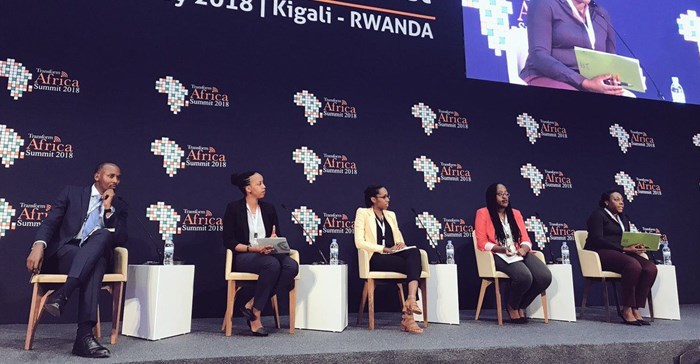Youth urged to create digital solutions to help tackle HIV and Aids
This came up during an Imbuto Foundation Youth Forum held Tuesday on the sidelines of the ongoing 2018 Transform Africa Summit in Kigali.
The youth forum was held under the theme, The new lens: Know. Treat. Suppress.

Sandrine Umutoni, the director general of Imbuto Foundation, said that health actors need to encourage the youth to nurture their ingenuity and capacity to design new solutions that respond to, among other things, health issues in the context of the digital age. "As we engage in a conversation, our hope is that the young minds gathered here are able to help bring forward ideas that will strengthen our efforts in our journey towards eradicating HIV and Aids by 2030," Umutoni said.
Digital solutions can bring sexual reproductive health in the hands of the youth
According to a report by UNICEF, in 2016, 73% of new HIV infections among adolescents occurred among African youth. The number of new infections is particularly daunting considering the expected number of young people in Africa will rise to 750 million by 2060. Dr Sabin Nsanzimana, a specialist in HIV global management, noted that despite HIV prevalence rate in Rwanda being at 3% for about a decade now, there is a higher infection rate among the youth and women than other groups.
According to Nsanzimana, as much as parents and caretakers have a role to play to in bringing this trend down, digital solutions which can bring sexual reproductive health in the hands of the youth - enabling access to information and services - will go a long way in bringing HIV to an end.
In 2016, Imbuto Foundation and its partners such as UKAID and UNFPA, began the Innovation Accelerator (iAccelerator); a programme that encourages young people to think critically and creatively about issues related to sexual and reproductive health and seeks to generate innovative, youth-led solutions to these issues.
The top four innovative solutions, which bring access to quality sexual and reproductive information and services for young people, received $10,000 in a grant, while selected innovators were coached, mentored and trained under the programme.
"Through initiatives such as iAccelerator, we are reminded that once involved, given the right platforms, the youth will contribute solutions that further engage, educate, empower our communities to thrive and live the dignified lives we are all entitled to," Umutoni said.
Youth needs to be part of policy formulation and decision-making processes
To the youth, Umutoni said, "we are here to tell you that you must be involved in the creation of solutions to issues that greatly affect you while including the digital component to ensure that these solutions appeal to our current times."
"We cannot give up nor become complacent in the face of an ever-evolving disease. Indeed, the fight against HIV and ids requires all of us to stay on top of prevention and treatment efforts," she added.
Mark Bryan Schreiner, the United Nations Population Fund (UNFPA) Country Representative, told The New Times that just as much as there is a growing conversation about economic transformation, it is imperative to ensure that the young people have good health. "Despite the tremendous achievements in the region, critical issues still need to be addressed. Young people in many contexts are not often engaged in policy formulation and decision-making processes.
"Girls and women, in particular, are still facing more obstacle than young men and boys in building their capabilities, as they are affected by harmful practices such as child marriage, female genital mutilation, early and unplanned pregnancies, poor access to health and limited education," Schreiner said.
On her part, Minister of Youth, Honorable Rosemary Mbabazi challenged parents to engage their children on sexual and reproductive health issues to create openness and awareness, and help the youth lead responsible lives.
Imbuto Foundation, which plays a key role in empowering youth, especially through education and other social support programmes, was established by First Lady Mrs Jeannette Kagame.
Read the original article on The New Times.